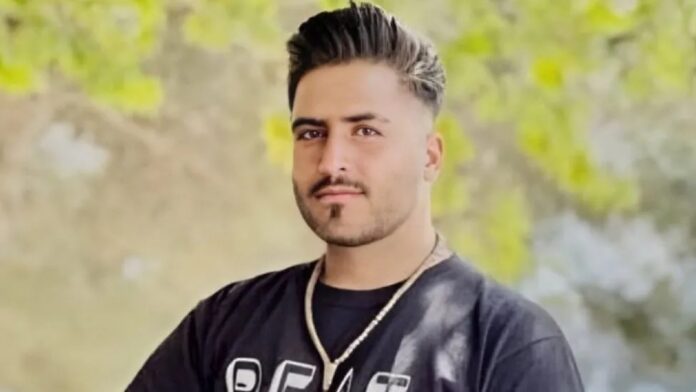Iran has reportedly executed Milad Zohrevand, a 21-year-old man sentenced to death in connection with last year’s anti-government protests.
The execution took place on Thursday morning at Hamadan Central Prison, marking the eighth death sentence carried out against protesters since the rallies erupted in September 2022.
Zohrevand was convicted of murdering a member of the Revolutionary Guards during a demonstration, a charge he vehemently denied.
Shockingly, sources reveal that he was denied legal representation throughout his detention and trial, a clear violation of due process and a fair trial.
The lack of confirmation from Iran’s judiciary raises further concerns about the transparency and legitimacy of the judicial proceedings.
This follows a pattern noted by the UN Secretary-General António Guterres, whose recent report highlighted that previous executions of protesters lacked due process, with descriptions of coerced confessions obtained through torture and the denial of timely legal representation.
Zohrevand’s execution comes amidst a violent crackdown on protests against Iran’s clerical establishment, triggered by the death in custody of Mahsa Amini, a 22-year-old woman detained for allegedly wearing her hijab “improperly.”
Security forces have portrayed the protests as “riots,” leading to hundreds killed and thousands detained.
Sources reveal that Zohrevand’s family has not been granted access to his body or informed about the imminent execution, raising questions about the transparency and humanity of the process.
Hengaw, a human rights group focusing on Iran’s Kurdish ethnic minority, strongly condemned the execution, asserting that it not only violated the right to life but also egregiously infringed upon the human rights of the detainee and his family.
Hengaw further alleged that the Revolutionary Guards, a powerful military and political force in Iran, had pressured authorities to execute without explicit consent from the family of the officer Zohrevand was alleged to have killed.
This adds a troubling dimension to the case, suggesting external influences on the legal process.
Last week, Hamadan’s prosecutor confirmed that a branch of the Supreme Court had upheld the death sentence for a defendant convicted of the murder of Ali Nazari, a member of the Revolutionary Guards’ intelligence service.
While the defendant was not identified, legal collective Dadban cited sources indicating that it was indeed Milad Zohrevand. The same sources reported that Zohrevand’s family had been coerced into not publicizing his case, raising concerns about intimidation tactics.
Iran’s alarming rate of executions, second only to China, has drawn widespread international concern.
The UN Secretary General’s report reveals that Iran executed at least 419 people in the first seven months of the year, marking a 30% increase compared to the same period in 2022.
The international community is now calling for a thorough investigation into Zohrevand’s case and urging Iran to uphold human rights standards.
As the world watches, the execution of Milad Zohrevand adds another dark chapter to Iran’s handling of dissent, intensifying global scrutiny of the country’s human rights practices.
The mounting evidence of due process violations and the lack of transparency in these executions underscore the urgent need for international intervention to address the deteriorating human rights situation in Iran.
This article was created using automation technology and was thoroughly edited and fact-checked by one of our editorial staff members

